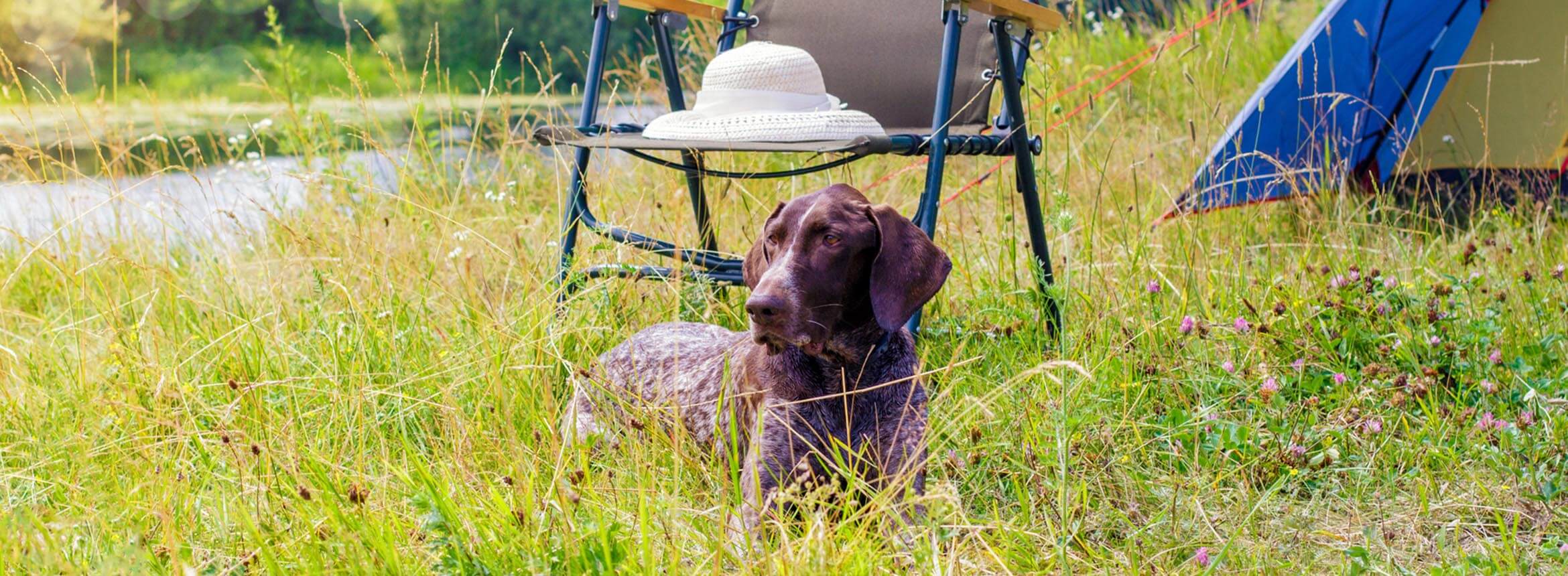You and your dog or cat aren’t the only ones who enjoy getting out into nature — all sorts of insects and animals call the woods their home. These seven tips will keep your pal safe while exploring.
1. Get your pet up to date on flea, tick, and heartworm prevention.
As any camper knows, bugs like mosquitos and ticks come with the territory! Before you head out for an outdoor adventure, make sure your pet is up to date on flea, tick, and heartworm protection. Use a bug repellent made for pets — never use human pest repellent on your dog or cat (it can be toxic). When you explore, keep out of long grass and brush, and don’t forget a pair of tweezers to remove any pesky ticks your pal picks up.
Safety tip: Make sure your buddy has an updated rabies vaccine before embarking on your camping trip.
2. Always keep your buddy leashed.
The woods are full of new and exciting sights and smells for your pal to enjoy — and unfortunately, some of those smells might belong to creatures like badgers, porcupines, skunks, deer, and bears! To avoid injury (or a really stinky pet), always keep your pal leashed. Even the most trustworthy companion can take off after catching sight or scent of another animal.
3. Stay together for safety! And make sure your buddy is microchipped.
It’s always a good idea to keep your pets by your side when you’re on a camping trip. Left alone, spooked cats and dogs are more likely to run off, get lost, or encounter a woodland creature who might not be so friendly. If your pets are not microchipped, have your veterinarian take care of it before you go.
4. Watch out for the other types of “bugs”— bacteria.
There are many forms of wildlife in the woods, and that includes harmful bacteria. Don’t let your pal interact with any kind of animal feces or drink from stagnant water to avoid a brush with bacteria that could result in illness. Ponds, lakes, and other bodies of water aren’t always safe to drink from either.
5. Zip your tent closed at night.
Make sure your pal sleeps inside your tent, and keep it secured at night. This will keep the bugs at bay and prevent your pets from heading out on late-night escapades to stalk raccoons or go mouse hunting.
6. The noms only come out at mealtimes.
Keep your pet’s food well contained until it’s time to eat, and make sure to put away any leftovers. There are plenty of critters that will come running as soon as they get a whiff of your pal’s leftover supper.
7. If you do encounter wildlife, stay calm.
If a forest creature crosses your path, the best thing you can do is stay calm and prevent your curious or excited pet from approaching it. If a wild animal approaches you, do not run — face the animal and slowly back away. Try to keep the animal from approaching by making a lot of noise, and pick up your pal if he or she is small.
These tips will go a long way to keep bugs from bugging you — you’ll be a happier camper, and so will your four-legged family member!



